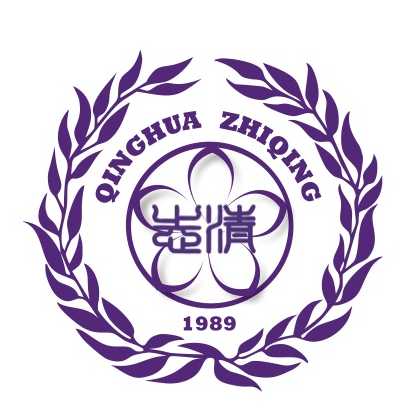For expat employees, the Chinese workplace can be a strange and confusing place. We don’t always understand why things are done the way they are and sometimes think we could do them better. However, when you dig under the surface, there’s often good reason for the things we find frustrating and counterproductive about working in China. Here are seven important things to know about the Chinese workplace that’ll help you understand and navigate it better.

Source:Mimi Thian
It’s natural that we won’t always agree with everything that happens at work, be it an argument between departments, between people within a team, or even a disagreement with your boss. While some expat workers can become fixated on winning the argument because they believe they are right, the Chinese tend to take a longer term view and pick their battles wisely.
For example, a team in the marketing department has launched an advertising campaign that your team feels is off-brand. You think your team should insist the campaign is scrapped, but your Chinese manager decides to take a different approach. While she agrees the campaign is not good, she decides to allow it to go ahead rather than cause conflict in the office. Either the campaign is a success and there was no reason to intervene, or the campaign fails as expected, teaching the marketing team a valuable lesson and perhaps diverting similar work away from them in the future. Working in China is sometimes about taking the longer term view and the path of least resistance.
In a fast-paced Western work environment, bluntness can often save time. In China, however, the same approach can easily damage work relationships. In the West, we favor a direct yes or no answer. In China, you’ll find your local colleagues are highly skilled at finding subtle ways to say no.
While not as efficient as the blunt approach, this roundabout communication style does help maintain important work relationships, which are very much dependent on maintaining “face" in China. What’s more, if you decide to take the Western approach and bluntly chastise your colleagues, you might find they’re less than receptive next time you need their help.
As foreigners working in China, we tend to ask a disproportionate amount of favors from our local colleagues. Remember to physically show your appreciation if someone helps you out, as reciprocity is very important in the Chinese workplace.
For example, a local colleague has just helped you out with some translations for your visa renewal. When you have your new visa in hand, thank your workmate by bringing him some fruit or a pot plant for his desk.
Similarly, if someone treats you to lunch, takes you out for drinks after work, or invites you to karaoke, remember to return the favor/invite in a timely fashion. It doesn’t always have to be a big or grand gesture. The most important thing is that favors, kindnesses, and invites are reciprocated in a consistent, like-for-like fashion.
There is much less emphasis on the individual in Chinese work culture compared to the West. In China, employees, managers, and even bosses are often a tight unit. They will eat together at lunchtime and even go for regular team meals and team building trips outside of office hours. All this is done to create a focus on the team rather than the individual.
When it comes to receiving praise at work, Chinese employees will typically deflect it onto the team as a whole. If you’re in the position of giving out praise in the Chinese workplace, therefore, direct it at the team rather than an individual. If you’re in the lucky position of receiving praise, be sure to at least make a show of trying to deflect it elsewhere. Modesty is highly prized in China. In its favor, the Chinese way is a lot more conducive to fostering a close-knit unit than one where everyone is competing for individual recognition.
In Western workplaces, teams tend to speak openly and frankly among themselves. Meetings are places where ideas are both presented and shot down, where teammates will critique each others’ proposals and managers will ask for honest feedback.
In China, the opposite is true. It is unusual to criticize or contradict a colleague in a group setting and even rarer to do so with a manager. Criticism is best given in private so that people can “save face” in front of others.
While some expat workers might argue that directness is more efficient, it’s key to the functioning of the Chinese workplace that employees do not feel they’ve been undermined in front of others. This approach actually has something to be said for it, as workers are encouraged to share their ideas without the fear of being embarrassed.
The idea of working 9 to 5 for five days a week is deeply embedded in the Western style of working. Those that work overtime are few and far between and rightfully compensated for the extra hours.
With this in mind, it is understandable why many foreigners are confused by the fact that their Chinese colleagues frequently work overtime for seemingly no reward. They are often unwilling to do any sort of OT themselves and are equally confused as to why the locals do.
Generally speaking, Chinese companies tend to pay their staff in a way that rewards all their unpaid overtime at the end of the year. There is a much stronger emphasis on the annual bonus here than in the West, with some payouts in big tech companies worth up to six months’ salary or even more.
Chinese employees work OT and weekends because they want to get that huge annual bonus, usually at Chinese New Year. Foreigners, on the other hand, are used to a workplace where their annual bonus, if they get one at all, doesn’t have much of an impact on their lives.
If you are employed in a Chinese company where there is the potential for a huge annual bonus, therefore, you might want to take a leaf out of your local colleagues’ book and start putting in some extra hours. As foreigners typically shun such activities, it’s a surefire way to be recognized and rewarded come bonus time.
When an ambitious expat enters the Chinese workplace there can be a strong urge to try to change things. They may think they have identified some redundant workflows or ways to improve the in-house systems. While the shortcomings you notice may just be down to a difference in workplace culture, it’s important to approach your calls for change in the right way.
Some foreigners are guilty of trying to change everything at once. While what they want to implement might be of benefit, the way they do it can cause more harm than good. Transitioning to new systems and workflows can slow down work and also temporarily damage quality, while wide sweeping changes can stress colleagues and greatly undermine team morale. With work being affected and staff unhappy, these changes may well be abandoned before they’ve had a chance to flourish.
It’s important, therefore, to instigate change gradually and with some diplomacy in the Chinese workplace. Suggest/implement one change at a time, starting with a change that will be easy and have an obvious result first. If it’s a big change, transition the team gradually by first focusing on the staff that are most capable of change.
These gradual changes, while perhaps seemingly sluggish to Westerners, come off as far less aggressive and confrontational in China. They allow local workers, who often stay at the same company for years if not decades, to change at a sustainable pace that doesn’t impact productivity.
| Hot New Jobs recommended for you |
|---|

ONC
|

Admiral Farragut Academy
|

Beijing-Dublin International College
|

Hobo Education
|

Pinduoduo-Shanghai
|

Sino-Canada School
|

BNU-HKBU United International College
|

Country Garden Schools
|

Springfield Kindergarten
|

Beijing Brookes Technology and Education Limited Company
|
| View More Jobs |
Warning:The use of any news and articles published on eChinacities.com without written permission from eChinacities.com constitutes copyright infringement, and legal action can be taken.
Keywords: Chinese Workplace
All comments are subject to moderation by eChinacities.com staff. Because we wish to encourage healthy and productive dialogue we ask that all comments remain polite, free of profanity or name calling, and relevant to the original post and subsequent discussion. Comments will not be deleted because of the viewpoints they express, only if the mode of expression itself is inappropriate.
Please login to add a comment. Click here to login immediately.
Culture shock doesn't have be a negative thing, we should keep an open mind and be receptive of our environment!
May 31, 2020 17:24 Report Abuse
Very insightful article. The author shows rich experience and cultural sensitivity with China (or Asian countries). I'd like to add though, that to criticize in private might not be uniquely in Chinese culture, as I've seen it in articles related to the Western workplace etiquette.
May 29, 2020 10:48 Report Abuse